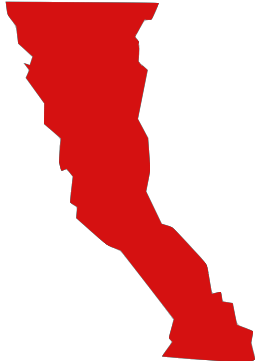International Labour Day: Origin, Significance of the Celebration on May 1st
INTERNACIONAL
01-05-2024

Wikipedia
Publicado: 01-05-2024 09:33:56 PDT
Actualizado: 01-05-2024 09:34:16 PDT
On May 1st, there was a major labor strike that occurred in Chicago in 1886
May 1st marks the commemoration of a major labor strike that occurred in Chicago in 1886, where the demand was for legislation enforcing an eight-hour workday.
Known as "Labor Day," this national holiday celebrates the social achievements of workers since the late 19th century. For a long time, it brought together crowds of workers in extensive demonstrations. But what is its origin and significance?
The origin of Labor Day dates back to the late 19th century when workers faced grueling workdays of 12 to 18 hours in large industrial factories. In the United States, the labor movement was growing and demanding the slogan of "eight hours of work, eight hours of rest, and eight hours of leisure."
Although in 1868 President Andrew Johnson approved the eight-hour workday for some workers, such as those in public works or office employees, this law was rejected by employers, and some states allowed an increase in the workday. The growing importance of the labor movement was manifested on May 1, 1886, when 307 demonstrations were called, bringing together 88,000 workers in Chicago, at that time the second most populous city in the country.
The demonstrations continued in the following days, but altercations also occurred. On May 4, the police killed 8 protesters after an explosive killed 7 security officers. Eight people were arrested as responsible, and five of them were sentenced to death, known as the "martyrs of Chicago": George Engel, Louis Lingg, Adolf Fischer, Albert Parsons, and August Spies.
Labor Day was established three years later, in 1889, by the Second International Socialist, to commemorate the eight-hour workday and the demands of the labor movement.
In Spain, it was unofficially celebrated since the early 20th century, but it was not established as a holiday until 1931, during the Second Republic. Franco abolished the holiday after the coup, but in 1955 the Catholic Church, under the papacy of Pius XII, decided to dedicate this day to Saint Joseph the Worker. With the arrival of democracy, the holiday was reinstated in Spain. In other countries, such as the United States and Canada, it was moved to September 1st and named "Labor Day."

Nacional
hace 3 horas
García Harfuch confirma que la captura de Hernán “N”, alias “El Abuelo”, fue posible gracias a la co ..

Deportes
hace 3 horas
Varios clubes se reforzaron con jugadores que estaba en el balompié europeo ..

Cali - Baja
hace 4 horas
En Tijuana, estudiantes expresan sus prioridades: seguridad y estabilidad económica marcan el rumbo ..

Cali - Baja
hace 4 horas
Tras el regreso a clases, uniformes y útiles no fueron suficientes; ahora se suman vestuarios y ador ..

Cali - Baja
hace 4 horas
Autoridades y líderes sindicales destacan un sindicalismo moderno, democrático y aliado del crecimie ..

Deportes
hace 4 horas
La pelea entre el mexicano y el estadounidense será este sábado en Las Vegas ..

